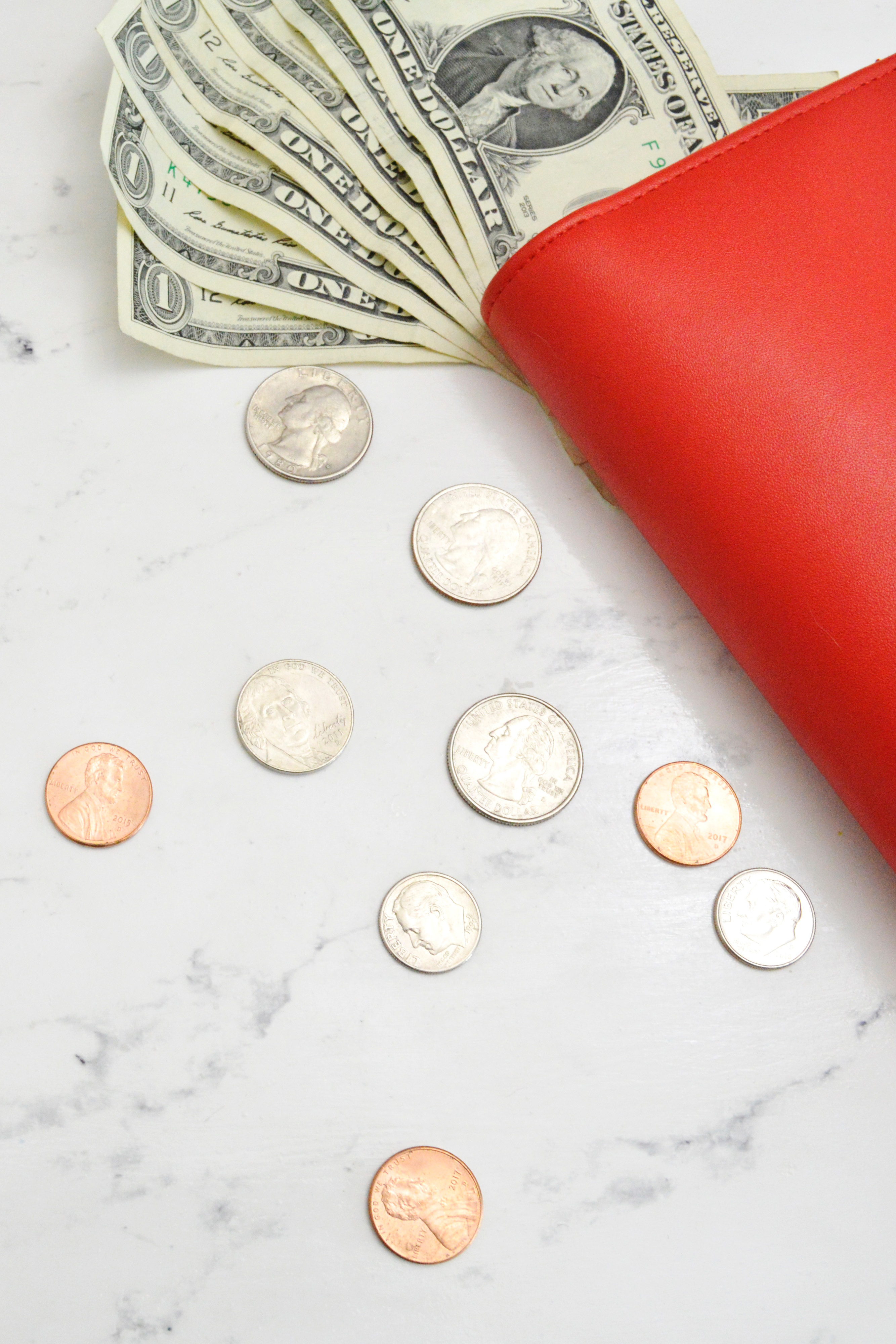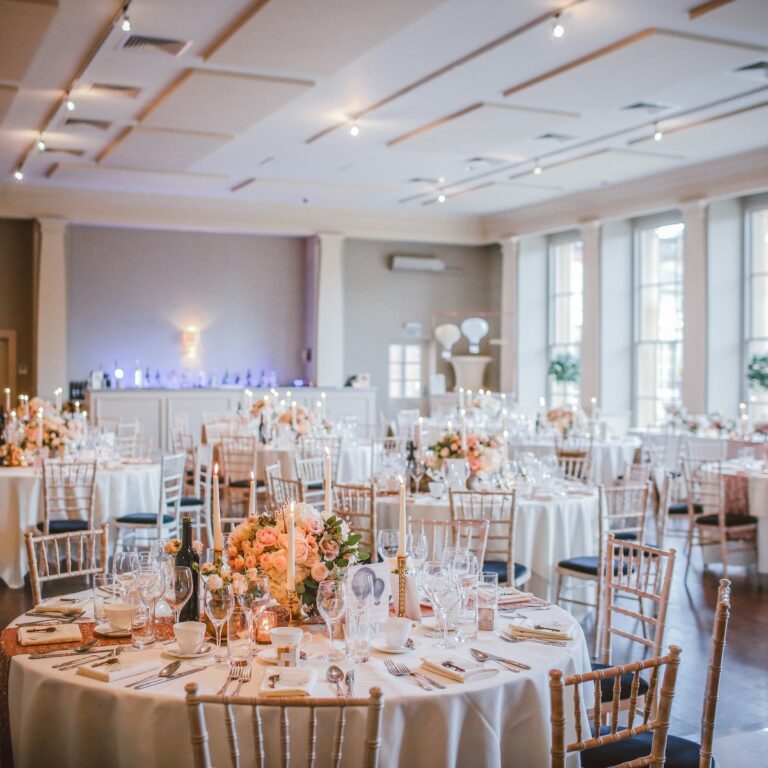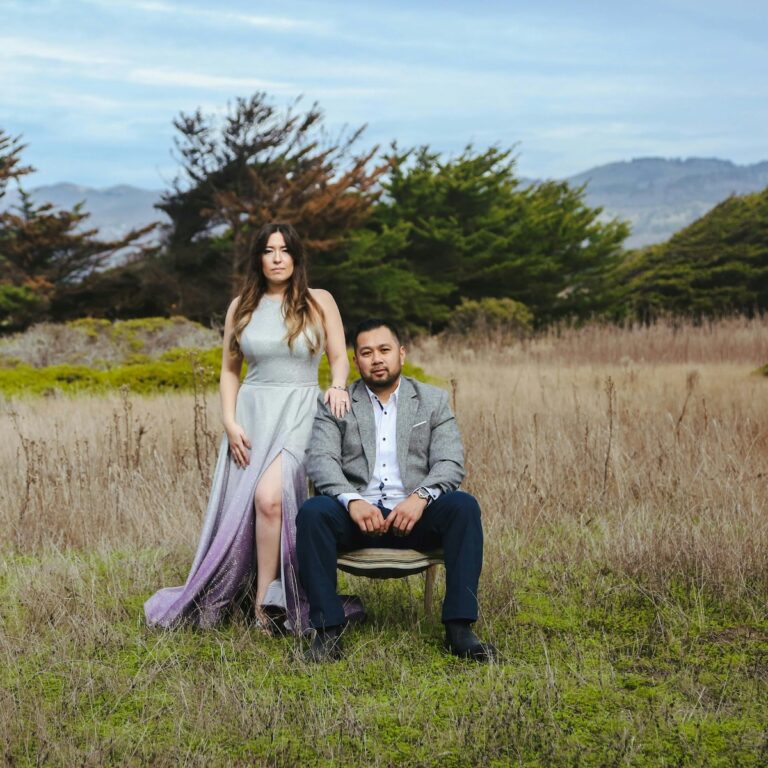Three things in life are guaranteed to cost you a fortune, and that’s buying a house, paying for college, and planning your wedding.
(And retirement, if you want to get technical, but you get the picture.)
One of the most prevalent questions from engaged couples is whether their wedding budget could be better spent on a home, instead. The answer is complicated, and different for everyone.
There are benefits and drawbacks to both, though. Consider the pros and cons of a big wedding or purchasing a home.
Note: for the purposes of this post, “big” doesn’t necessarily refer to guest count, but rather a high wedding budget.
This post may contain affiliate links. Read my full disclosure about affiliate links here.
Benefits of a “Big” Wedding
Yes, your wedding is just one day – but it’s one of the biggest days of your life.
On the other hand, so is the day you purchase your first home.
Proponents of going all-out on the wedding point out, and rightfully so, that this is the only wedding you’re going to have (excluding remarrying and vow renewals).
Houses, on the other hand, are always available. Regardless of how hot or cold a market is, houses continue to sell as a whole, and always will. When you’re ready to buy, you’ll find something.
It’s unlikely you’ll regret the house you end up buying a year or two from now, lamenting some “perfect home” that got away, because you won’t even know what you missed.
You can, however, regret your wedding, and feel like you missed out on some key elements you really wanted.
Another benefit of a wedding with a larger budget? Less stress! More money means you can then farm things out to professionals. The less you have to do yourself, the more you can focus on the things you want to manage more closely.
If crafts and DIY are your forte, wouldn’t you prefer to spend your Saturdays making signs and favors, instead of coordinating the delivery of 200 folding chairs?
What if, instead of stressing over how much a wedding cake cuts into a strict budget, you had a little more wiggle room to simply order exactly what you wanted?
Money doesn’t fix everything—but when it comes to wedding stress, it comes pretty darn close.
The most hated aspect of wedding planning is, undoubtedly, grappling with the budget.
So consider giving yourself the gift of just a little more money. Postponing your home-buying plans to focus entirely on saving for the wedding is the easiest way to do that.
Another point to consider: look at how much you’ve accomplished, while saving and budgeting for your wedding so far. You now know what you’re capable of, when there’s a concrete goal with a close deadline.
After your wedding, you can set a new one: moving into a house six or twelve months later. Imagine how much money you’ll save in that timeframe. You’ve done it once already, so you’ll know you can do it again!
Benefits of Buying a Home Instead
Of course, as fabulous as a larger wedding budget is, there’s a reason this question comes up so much: a house lasts forever.
The wedding is over so quickly, it feels like we’ve barely had time to blink before guests are throwing bird seed. All that planning, stress, anticipation—all that money—for a few hours, gone. Just like that.
Obviously, the memories will last forever (as will the photos), but you get the gist. A big wedding budget is basically investing in one day, but a big down payment is investing in your entire marriage, and the home you’ll share.
The average wedding costs upwards of $30,000.
The average house? Over $200,000.
The math does make sense—a smaller wedding budget frees up a ton of that cash for a hefty down payment, and better mortgage rate overall.

If you’re planning to purchase a home shortly before or after your wedding, allocating those funds to the house might be the way to go.
House or Dream Wedding: Which Should You Do?
If you interviewed 100 engaged couples at random, you’d get a pretty even split of what they’d rather do.
Every single situation is unique, and there’s not really a right or wrong decision, here. There’s only what’s right for you.
If you’re having trouble deciding, sit down with your fiancé and ask yourselves some big questions:
What is our income? Will it change soon?
If you earn enough, and/or know some career improvements are on the horizon, you might be able to have a big wedding and get a down payment saved at the exact same time.
Consider trimming your household budget to save as much as possible, as fast as possible.
What do homes in our area cost? Are we planning to move elsewhere—and are houses there cheaper, or more expensive?
What’s true in one location isn’t necessarily true in another. Research houses in your ideal area. You might find houses are pricier than expected, and decide to either delay buying or reduce the wedding budget, so you can better afford a home.
Alternatively, houses might be cheaper in that area than you thought—which means you could afford both, or have your wedding now, and quickly save for a house afterwards.
In either case, diligent research is the way to go. This information can affect your decision dramatically, and make the right one clearer.

Will this wedding put us into debt?
If you’re putting most or all of the wedding on credit cards so you don’t touch your down payment, reconsider the pros and cons of that plan.
Do you want to wake up after the “I Do’s” with a financial hangover? Try to cut your wedding budget, or delay buying a house so that money can be funneled to the festivities. Your future selves will thank you.
If you’re charging your wedding because you have no money, it might be best to give yourself some tough self-love and admit that you can’t afford a home yet, anyway.
Is renting a little longer possible?
Month to month, home ownership is cheaper – but when looking at yearly costs, you might be facing a bigger bill than expected.
When things go wrong in a rental, your landlord foots the bill—and you won’t have to dig into the wedding fund to fix it. Not true with ownership. If you can, consider renting longer so you can put more money to the wedding first, and then the house later.
How easily did we save our wedding money?
How long did it take you to save what you have so far? Weeks, months—a year? Would you be willing to do it all over again, after the wedding is paid for, so that you can get a house next?
If the answer is yes, have the big wedding; if it’s a no, you might want to put the money to a down payment, instead. You’ll enjoy the fruits of that hard labor much longer.
Do we really need a large down payment?
This is often overlooked by couples just beginning the home buying process: 20% is no longer the standard for down payments. A plethora of options exist for smaller amounts—including 3-5%, or even 0%!
To see if you qualify for any of these mortgage options, meet with a lender. He or she can discuss your options and help you come up with a target figure, so you know how much to save.
Secret Option #3: Compromise, and Do Both!
If you still can’t decide—why not get a house and your ideal wedding?
Think about it. Wedding planning is full of absolutes: either you have a cake, or you don’t. Destination or nearby. Big guest list, or small. Wouldn’t it be nice to finally have a choice between A, B…or A and B?
By splitting your budget, you get the best of both worlds: a wedding day that’s magical enough to ensure you won’t regret skimping, and a down payment on a home that will last long after the just-married high.
If your budget is large enough – $20,000, for example – it’s completely possible to split that in half, without giving up too much of what you want for either purchase.
Overall, ten grand is a nice down payment on most starter homes. It’s also a great budget for weddings, if you cut some of the extras.
If your budget is smaller, like $12,000 or less, you might only shave a couple grand off the top and throw it at a house. And that’s okay.
The split doesn’t have to be fifty-fifty. In fact, it probably shouldn’t be.
Your wedding is on a clock, so you have a finite amount of time to earn and save money to pay for it.
A house can be purchased any time. There’s nothing wrong with putting a couple grand towards it now, then saving up more after the wedding.
These compromises sound simple, but implementing one might give you so much more peace of mind that you realize. You’ll feel like you’re making headway on both goals at once, instead of sacrificing one for the other.
What do you think – house, or big wedding? Share your thoughts in the comments!









